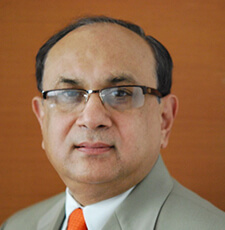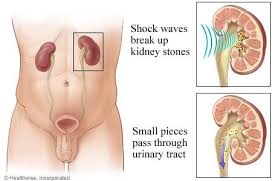
Dr. Janak Desai is an Indian Urologist (M.S.; M.Ch; FRCS) best known for developing the technique of Ultra-Mini Percutaneous nephrolithotomy (PCNL). He has performed more than 10,000 kidney stone operations.
Each year, more than one million Indians are detected with a Kidney stone. The kidney is one of the vital organs of the body. It is constantly at work to remove all the waste and fluid particles from your body in the form of urine. Thus when the kidney stops functioning, waste matters begin to circulate with the blood and hamper the other organs.
Kidney stones develop due to the accumulation of certain kinds of wastes in the body. When your blood does not have enough fluids to flush out the waste, they tend to get accumulated in the kidney itself. These particles eventually stick together, forming a solid hard lump. This lump of waste is what is known as kidney stone.

Since all humans have kidney, everyone has the potential to get stones at some point in life. However, the risk factor is higher for some people compared to that of others. For instance, statistics indicate that men have a higher probability of getting kidney stones than women. Further, people belonging to a particular geographic location, or with specific food habit or from particular gene pools also have a higher risk of stone formation.
Apart from this, the leading Kidney stone hospital in Ahmedabad, Samved Urology Hospital, has identified causes that may lead to the formation of kidney stones:
Another point that you need to remember is that people who have had kidney stones in the past are also at high risk. This is because there is always a chance of re-accumulation of the stones even after surgery.
Kidneys stones usually come to notice and start showing symptoms only after they gain a specific size. The small stones can move unrestricted through the urinary tract and can be excreted out of the body without causing any uneasiness or sensation of pain. In fact, unless medically tested, people with the small-sized stones may never even realise that they have kidney related issues.
For patients with the bigger sized stones, the symptoms include:
While these are the common symptom observed in maximum patients of kidney stone, some patients may have some unusual symptoms. There are also a few patients who do not even realise that they have stone until it takes a severe turn.
That is why the expert urological surgeon suggests that if you fall under the risk group or if you have other diseases such as diabetes that may affect the kidney; regular check-up is a must.
With early diagnosis, kidney stone treatment becomes easy and effective. Further, it also prevents the chances of other organs getting affected.
The detection of the stone is the first step towards effective kidney stone treatment. If the doctor feels that your symptoms are similar to that of kidney stone patients, he or she may ask you to go through the following tests:
At times, contrast dyes are used in the CT-scan to detect the stones and their size and placement accurately. If you have encountered problems while using contrast dyes for medical tests in the past, then it is essential that you inform your doctor about it. Then the doctor can avoid this test and suggest some other diagnosis method in its place.
The kidney stone removal treatment in India at Samved Urology Hospital is decided upon after the experts have determined the stone's size. Here are some of the treatment procedures that are usually followed:
If your kidney stones get detected at an early stage, the treatment method taken up by the doctor includes active surveillance of the stones to see if there is any growth. At the same time, the doctor is likely to suggest you take lots of fluids along with some oral medicines so that the stones get pushed through the urinary tract.
However, the constant supervision of the doctor is essential. Some additional treatment may become necessary at any time.
If your stones are bigger, and they are not likely to pass through the urinary tract, the doctors may suggest Lithotripsy therapy. In this method, shock waves are used so that the stones get broken into smaller fragments. These fragments can pass through the urinary tract easily.
In certain cases, when the stone is detected at a later stage and is causing too much pain or disrupting the kidney's function, surgery may be needed. The leading kidney Hospital in Ahmedabad, Samved offers you a team of senior surgeons with several years of expertise. They can help you get rid of the stone in the least intrusive and the most effective way.
To know more about our kidney stone laser treatment cost in India, and to consult our doctors, get in touch with us right away.
Samved Hospital is a very good hospital that has well trained and professional doctors, nurses,matron and cleaners. They have modern equipments and the hospital staff is very friendly & they attended me very well.
I had a kidney stone surgery with 14 weeks pregnancy and it was succesful, both me and baby are doing very well. I will like to thank Dr. Janak Desai for helping me out with kidney stone problem which I have been suffering since childhood. All the staff took a very good care of me.
Keep up the good work samved hospital!
So far the best hospital ever to me and my family.
Samved Hospital is a very well equipped, neat and clean hospital, facilitating treatment and recovery of patients in all respects- from pre-operative to post operative period. I had undergone a surgery of extraction of a large Kidney stone by Intra Corporeal Pneumatic Lithotripsy (PCNL) and everything had gone smoothly; I was out of the hospital in 3 days and back to office in 5 days time.
Nr. Stadium Circle,
Navrangpura, Ahmedabad - 380 009
Gujarat (India)
+91 79 2642 0285, 2643 1616
+91 79 2640 2062 / 63 / 64